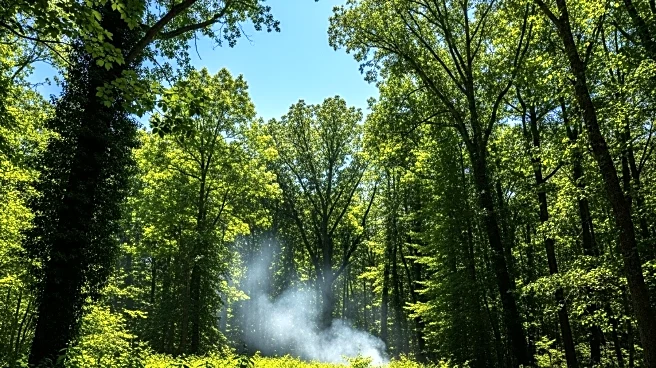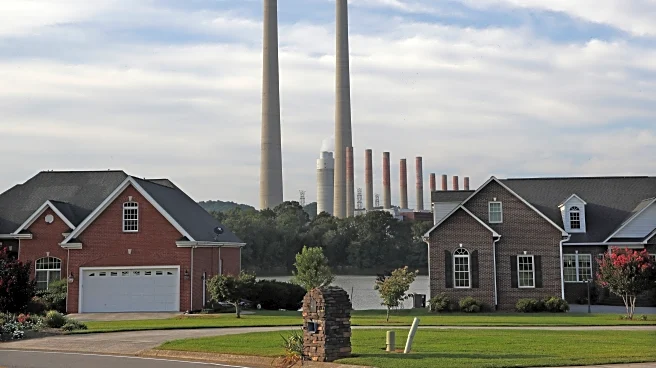What's Happening?
Recent scientific studies have found that climate change has significantly increased the likelihood and intensity of wildfires in Greece, Turkey, and Cyprus. According to researchers from World Weather Attribution, the conditions that fueled the fires this summer were 22% more intense and 10 times more likely due to climate change. The study highlights that the warming of 1.3 degrees Celsius since pre-industrial times has made such extreme weather events more frequent. The Mediterranean region, particularly vulnerable to climate change, has experienced its worst wildfire season on record, with over a million hectares burned and significant loss of life and property.
Why It's Important?
The findings underscore the urgent need for enhanced climate adaptation and mitigation strategies in regions prone to wildfires. The increased frequency and severity of these fires pose a threat to ecosystems, human life, and economic stability. As climate change continues to exacerbate natural disasters, governments and communities must prioritize sustainable practices and invest in resilient infrastructure. The study also calls attention to the broader implications of climate change, including its impact on global weather patterns and the necessity for international cooperation in addressing environmental challenges.
What's Next?
Governments in the affected regions are expected to reassess their wildfire management and prevention strategies. This may include increased investment in firefighting resources, improved early warning systems, and stronger policies to reduce carbon emissions. The international community may also play a role in supporting these efforts through funding and knowledge exchange. As climate change remains a global issue, collaborative efforts will be crucial in mitigating its effects and protecting vulnerable regions from future disasters.











